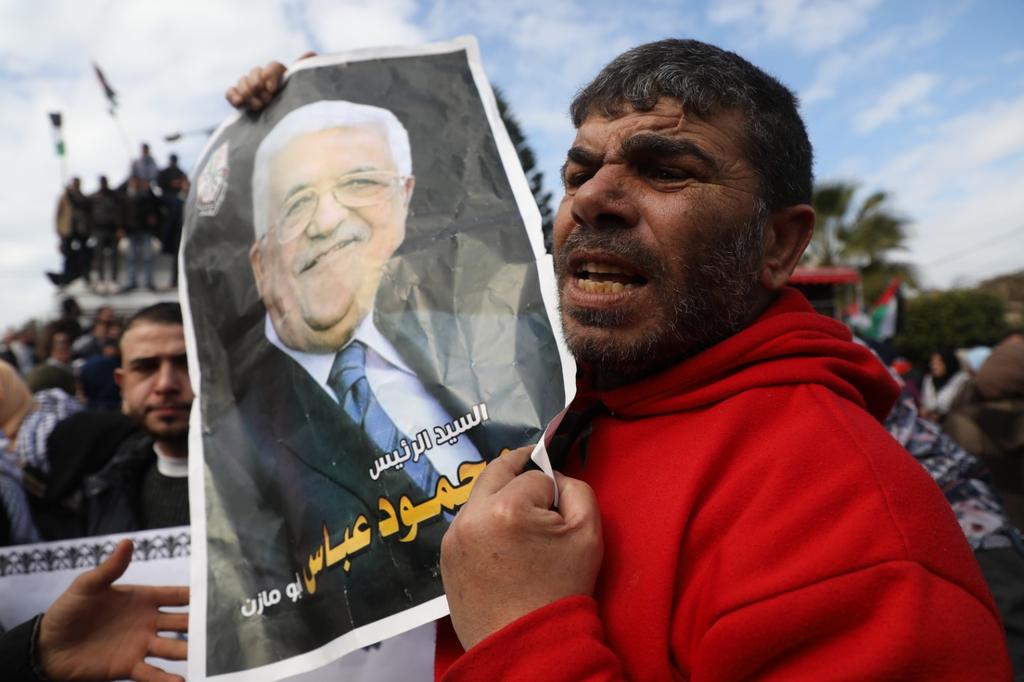Sources in the Palestinian street slammed Saudi Arabia for attacking Mahmoud Abbas publicly over his alliance with Iran and Turkey, states that threaten regional stability with terror proxies.
By Baruch Yedid, TPS
In the third and final part of a series of interviews given by Saudi Prince Bandar bin Sultan to Al-Arabiya, the senior Saudi official criticized the Palestinian leadership as part of what is now perceived in Ramallah as an effort to deny Palestinian Authority (PA) head Mahmoud Abbas’ legitimacy.
Bandar stressed in the interview that “Saudi Arabia must pay attention to its interests and not to those of Palestinian leaders who have transferred their allegiance to Turkey and Iran.”
The Saudi prince made a distinction between the Palestinian leadership and the residents of the PA and said “Saudi Arabia supports the Palestinian cause but not the Palestinian leadership under Abu Mazen [Mahmoud Abbas].”
He reiterated Saudi Arabia’s commitment to “Palestine,” but clarified that “he does not see the Palestinian leadership as representing the Palestinian cause.”
“In my opinion,” said Ben Sultan, “in light of the events that have taken place around the world, we are at a stage where we must not worry about how to deal with the Israeli challenges in order to serve the Palestinian cause but pay attention to national security and our interest.”
Referring to Fatah and the PA’s appeal to the Turkish axis and Hamas’ to Iran, the Saudi prince said that “the Palestinian leadership has chosen to unite with Iran and Turkey instead of with its traditional allies in the Arab world.”
“New players have entered the picture claiming they are serving the Palestinian cause and claim it is their top priority as well as the liberation of Jerusalem,” he said, “so Palestinian leaders prefer Tehran and Ankara over Riyadh, Kuwait, Abu Dhabi, Dubai, Manama, Oman, Muscat and Cairo.”
The prince, one of the architectures of the kingdom’s foreign and security policy, estimated that “it will be difficult to solve the Palestinian problem since the current leadership under Abu Mazen cannot be trusted.”
In his remarks, he sharply attacked “Palestinian leaders who deny Saudi Arabia’s support for them and although this will not affect our affiliation with the Palestinian people, it is difficult to trust these people and act for the Palestinian cause as long as they are around.”
Ben Sultan, who was the Saudi ambassador to the United States, also referred to the “historic failures of the Palestinian leadership, which took Saudi Arabia’s support for granted.”
“Arafat signed the Oslo Accords in 1993, after rejecting previous deals that contained the same terms,” he said, expressing frustration at Arafat for rejecting the Camp David agreement in 2000 when he refused to sign.
“I wanted to cry and my heart burned over the fact that the opportunity was lost again and perhaps for the last time,” he told Al Arabiya.
Sources in the Palestinian street estimate that Saudi Arabia has begun to prepare the atmosphere in the region for a new phase of normalization of relations with Israel as part of new foundations concerning Saudi national security, but many estimate that this severe attack, which they termed a “massacre in broad daylight,” came mainly following Abu Mazen’s appeal to Turkey and the effort for unity with Hamas.
The PA continues to remain silent in the face of the Saudi attack. A PA source said that “Abu Mazen instructed not to comment on the issues due to the sensitivity and importance of Saudi Arabia.
However, the Fatah leadership is slated to convene on Wednesday in Ramallah and an official Palestinian response may be heard.
HELP ISRAELIS BATTLE CORONA!
Donate to the Corona Emergency Relief Fund. Coronavirus has taken a huge toll on the people of Israel. The poor, elderly and ill are most vulnerable.
Israeli soldiers, security officers and medical care providers operate under great danger and risk to life.
Over 1 million Israelis are out of work. Many cannot make ends meet. We provide financial aid, food, medical supplies and more. Funds are distributed where needed most. The time to act is now!
United with Israel extends a special note of appreciation to the Genesis Prize for their generous support.
Do You Love Israel? Make a Donation - Show Your Support!
Donate to vital charities that help protect Israeli citizens and inspire millions around the world to support Israel too!
Now more than ever, Israel needs your help to fight and win the war -- including on the battlefield of public opinion.
Antisemitism, anti-Israel bias and boycotts are out of control. Israel's enemies are inciting terror and violence against innocent Israelis and Jews around the world. Help us fight back!
